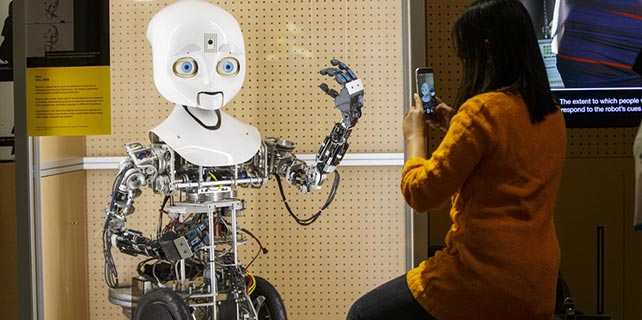Trump advised on China policy




A report released by a bipartisan task force of prominent China specialists on Tuesday cautioned the new administration in the White House not to tamper with Washington's long-standing one-China policy, and suggested US President Donald Trump meet with his Chinese counterpart early on for communications at the highest levels.
The Trump administration took office at a moment when the China-US relationship stood at a "precarious crossroads", according to the report, titled US Policy Toward China: Recommendations for a New Administration, which was co-written by China scholar Orville Schell and Susan Shirk, a professor of political science at the University of California-San Diego.
In his first year in office, Trump will confront six contentious, high-priority issues, including halting nuclear and missile programs on the Korean Peninsula, reaffirming US commitments to Asia and deploying tools to what it called the lack of reciprocity in trade relations with China, said the 72-page report.
In addressing these challenges, the new administration should be mindful of lessons from the past, the report said.
"This is especially true on the sensitive question of Taiwan, where it would be dangerous to unilaterally abandon our long-standing ‘one-China policy'," it said. "No national interest is furthered by abandoning or conditioning the ‘one-China policy' on other issues."
Speaking of the 18 months of work, Shirk said, "We were quite worried about the state of China-US relations, because the trends were not good … we might lose the chance to do this later. So we'd better act now."
Less than a month ago, Trump told the Wall Street Journal, "Everything is under negotiation, including one China," which led many in China to believe that he intended to use Taiwan as a bargaining chip. In response, Beijing stressed that one-China policy is nonnegotiable.
Shirk, also a former Clinton administration official, said, "Across-the-board tariffs or rejecting the one-China policy that is kind of part of the constitution of US-China relations would be a very radical action on the part of the US."
She proposed maintaining the fundamental stability in the relationship, of which the one-China policy is a key component.
"We shouldn't twitch from pushing back when we need to push back and we shouldn't worry about little more tension in the relationship," Shirk said. "We believe that in the end we will end up with an honest and mutually respectful relationship with China."
The report also advised that Trump should meet with President Xi Jinping early on in his administration to establish the foundation for "effective communications at the highest level".
As Trump endeavors to deliver his campaign promises one after another despite institutional barriers, Beijing will have to deal with a tougher Washington, said Li Haidong, a professor of US studies at China Foreign Affairs University.
Trump has not sent a Cabinet member to visit China since his inauguration, according to Li.
Instead, Trump sent his defense chief James Mattis on Feb 2 on a visit to Japan and South Korea, where he reiterated the US commitment to the Terminal High-Altitude Area Defense system on Korean soil.
"This does not sound like any good news to Beijing, which Trump had portrayed as a ‘currency manipulator' responsible for the loss of American jobs along his campaign trail, not least given the likelihood of escalated trade frictions between both countries," said Li.
Charlene Barshefsky, former US Trade Representative, said trade with China is critical to the US economy.
"Dialogues are great, results are better, and we need to see results standing from China's promises to undertake certain forms of changes and reforms," the chief negotiator of China's WTO agreement said.
Cui Liru, a senior adviser to the Beijing-based think tank Pangoal Institution, said Trump's unique diplomatic approach will pose a challenge to codes enshrined in the 1970s.
China-US ties now face Trump's "dual-track approach", he said.
"On the one hand, he believes a China that offers education and accommodation to hundreds of millions and helps many join the middle-class club is a worthy trade partner," Cui said.
"He also feels the urge to get tough with China to ‘cut the best deal' for his country, even at the risk of disrupting long-term plans and breaking diplomatic consistency," Cui added.












